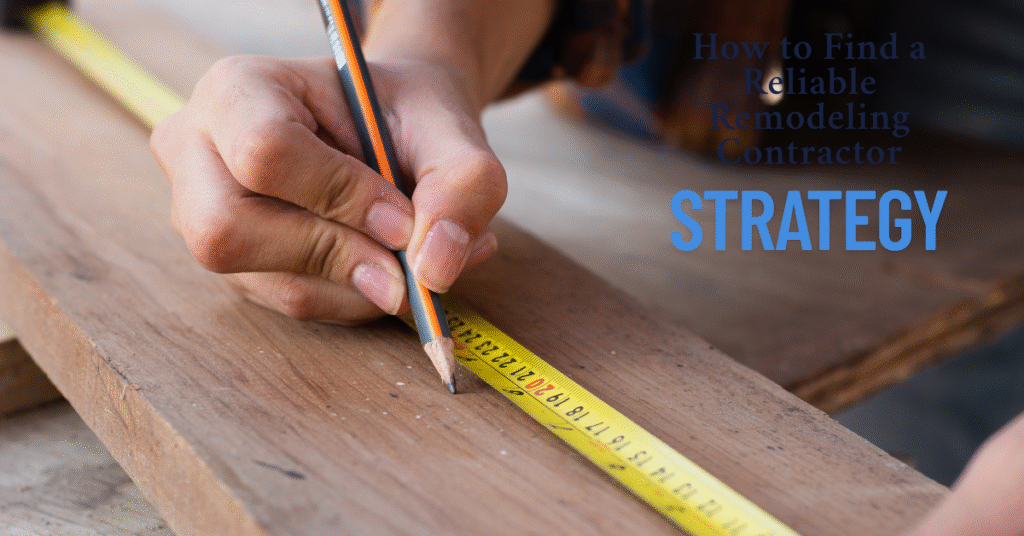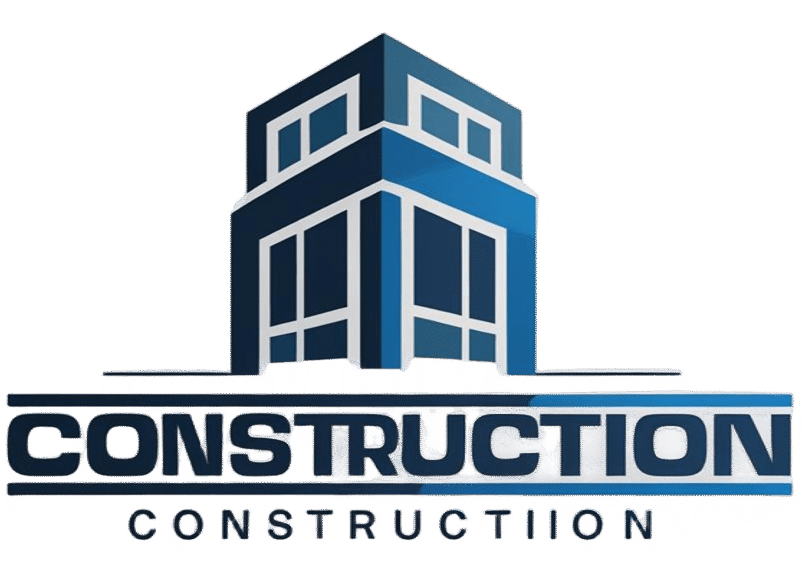Learn how to find a reliable remodeling contractor in 2025. This comprehensive guide covers every step: defining your project, comparing estimates, checking licenses, identifying red flags, and more.
Remodeling your home is one of the biggest investments you can make in your property. A successful renovation doesn’t just improve aesthetics—it adds value, improves functionality, and enhances daily living. But one of the most critical factors that determines the success or failure of your project is the contractor you choose.
Choosing the right remodeling contractor can be overwhelming, especially with hundreds of options available online. How do you know who to trust? How do you avoid scams, delays, and low-quality work? In this guide, you’ll learn step-by-step how to find a reliable remodeling contractor in 2025, based on proven industry practices, real homeowner experiences, and professional standards.
Define the Scope of Your Remodeling Project

Before reaching out to any contractor, it’s essential to clearly define what your project involves. This helps you communicate your needs and expectations with precision and allows contractors to give more accurate quotes.
Start by writing down the answers to these questions:
- Which rooms or areas are being remodeled?
- Is it a full renovation or partial update?
- Will you need new plumbing, electrical, or structural changes?
- Are you planning to reuse existing fixtures, or will everything be replaced?
- What’s your ideal budget range, and what’s your maximum?
- Do you have specific materials, brands, or styles in mind?
- When would you like to start, and how long can the project take?
Having this written summary will save time and serve as a reference when comparing contractors and proposals.
Where to Look: Finding Reliable Contractors
Searching online can feel like diving into an ocean of options. To narrow your search and increase your chances of success, use multiple trusted sources:
1. Word of Mouth
This remains one of the most powerful ways to find reliable professionals. Ask people you trust:
- Who did your recent remodel?
- Were they happy with the results?
- Did the contractor show up on time and stay within budget?
- Would they hire the same person again?
2. Online Platforms
Visit websites that specialize in contractor listings and home services:
- Google Maps (look at the “Google Business Profile” and read both recent and old reviews)
- Houzz (great for portfolios)
- Angi (formerly Angie’s List)
- HomeAdvisor
- Yelp (look beyond star ratings—read the full comments)
Focus on contractors with consistent, recent, detailed reviews. Avoid listings with few reviews or only generic praise.
3. Trade Associations
Membership in local or national associations like the National Association of Home Builders (NAHB) or National Kitchen and Bath Association (NKBA) can indicate professionalism and commitment to industry standards.
4. Local Building Supply Stores
Ask your local tile store, lumberyard, or plumbing supply shop if they know contractors who regularly purchase quality materials and pay their accounts on time. Suppliers often know who the reliable tradespeople are.
Licensing, Insurance, and Credentials
No matter how friendly or professional a contractor seems, always verify their credentials.
- License: Check your state’s contractor license board or municipal database. Ensure their license is active and covers the type of work they’re performing.
- Insurance: Ask for proof of general liability and workers’ compensation insurance. This protects both you and the workers if an accident occurs.
- Bonding: In some states, bonding is required and adds a layer of protection if the contractor fails to complete the job.
Tip: Don’t just take their word for it. Ask for official documentation and contact the issuing agencies to confirm.
Deep Dive into Online Reviews
In 2025, online reputation can make or break a contractor. But not all reviews are equal. Here’s how to interpret them like a pro:
- Look for specific feedback: “They installed our bathroom tile unevenly and never returned our calls” is more valuable than “Great job!”
- Look for patterns: Do multiple people mention missed deadlines or extra charges?
- Check how the contractor responds to criticism. A respectful, professional reply—even to a bad review—shows integrity.
- Beware of perfect 5-star profiles with no comments or all posted in a short time. These may be fake.
Combine what you read online with personal interviews to get the full picture.
Interviewing Contractors: What to Ask
Once you’ve narrowed your list to 3–5 candidates, it’s time to set up interviews. Ideally, the contractor should visit your home and walk through the project. Use this opportunity to evaluate their professionalism, knowledge, and communication.
Key Questions:
- How long have you been in business?
- Do you have experience with this type of remodel?
- Can I see a portfolio of similar projects?
- Who will be doing the work—your crew or subcontractors?
- Do you obtain permits, or is that my responsibility?
- How do you handle change orders or unexpected issues?
- What’s your projected start date and timeline?
- How will communication work during the project?
A good contractor will answer all of these confidently and explain their process in detail.
Portfolios and Project Visits
Ask for digital or printed portfolios showing recent projects. These should include:
- Before and after images
- Project scope descriptions
- Timeframe for completion
Even better, request permission to visit a current job site. This gives you valuable insight into how they operate:
- Is the site clean and organized?
- Are materials stored safely?
- Do the workers appear professional and focused?
A site visit reveals a lot that brochures and reviews cannot.
Written Estimates: What to Expect
Once you’ve spoken to multiple contractors, ask for written, itemized estimates. A proper estimate should include:
- Labor costs
- Material allowances and item descriptions
- Equipment fees (e.g., dumpster rental, scaffolding)
- Permit and inspection fees
- Estimated start and completion dates
- Payment schedule
- Contingency plan for unexpected issues
Warning: Avoid contractors who give vague estimates or verbal quotes only. You need written documentation in case of disputes or confusion.
Payment Terms and Red Flags
Most reliable remodelers use milestone-based payments. A typical structure looks like:
- 10% at contract signing
- 30% after demolition
- 30% after rough-in (plumbing, electrical, framing)
- 20% after tile and finish work
- 10% after final walkthrough and punch list completion
Avoid contractors who ask for more than 30–40% upfront, or who insist on cash-only payments.
Warranties and Follow-Up
Ask what warranties are offered on both materials and labor. These should be:
- Provided in writing
- Clearly outline what’s covered (and what’s not)
- List expiration dates
- Include a contact number for claims
A contractor who refuses to offer warranties—or tries to offer only verbal promises—should raise concerns.
The Final Contract
Your contract should be detailed, clear, and cover all aspects of the job. It must include:
- Full scope of work
- Payment schedule
- Timeline and milestones
- Materials and brands
- Permit responsibilities
- Cleanup and debris disposal
- Warranties and guarantees
- Procedures for changes or delays
- Legal dispute resolution process
Review it carefully before signing. You may also choose to have an attorney or experienced third party review it with you.
Watch for These Red Flags
Stay alert for warning signs such as:
- No physical business address
- Refusal to provide written estimates or references
- Requests for large cash deposits
- Pushy or evasive communication
- Poor online presence or hidden license details
- No mention of permits or local code compliance
If something feels “off,” trust your instincts and keep looking.
Conclusion: Choose With Confidence
Finding a reliable remodeling contractor takes time, but it’s worth the effort. With the right partner, your renovation will be efficient, stress-free, and transformative. With the wrong one, it could become a financial and emotional headache.
Take the time to plan, research, and compare your options. Focus on communication, documentation, transparency, and professionalism.
A successful remodeling project begins with a solid relationship—and that starts with choosing the right contractor.
Frequently Asked Questions (FAQs)
How long will the remodeling project take?
The timeline depends on the size and complexity of the project. A small bathroom remodel may take 1–2 weeks, while a full kitchen renovation could take 4–6 weeks or more. We provide a detailed schedule in every estimate so you know what to expect.
Are you licensed and insured?
Yes, we are fully licensed and carry both general liability and workers’ compensation insurance. We’re happy to provide documentation upon request to ensure your project is protected and compliant with local regulations.
Can I see examples of your past work?
Absolutely. We have a portfolio of completed projects you can view online, and we’re happy to share references or even arrange a visit to a current job site when possible.
Do you offer a warranty for your work?
Yes, all our remodeling work is backed by a written warranty. This typically includes a labor warranty and any manufacturer warranties on materials used. We’ll explain all coverage before the project begins.
What is included in your estimate?
Our estimates are detailed and itemized. They include labor, materials, demolition, cleanup, permits (if applicable), and a projected timeline. We believe in transparency—no hidden costs or surprises.

